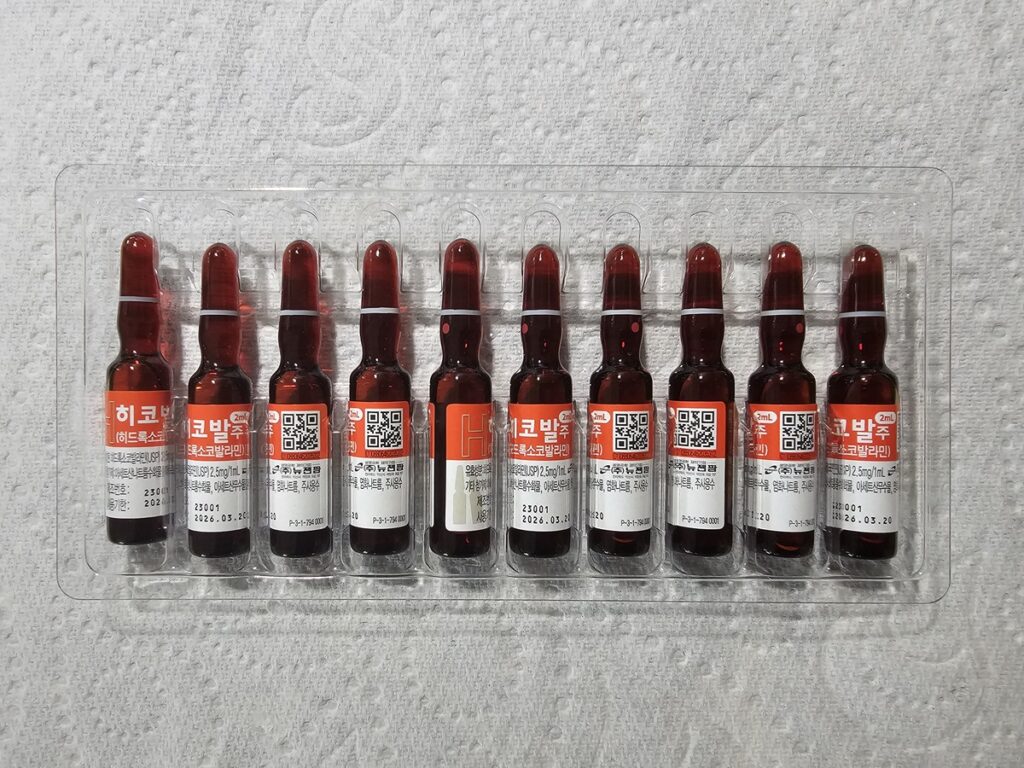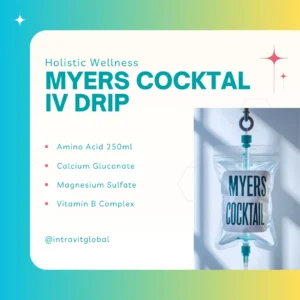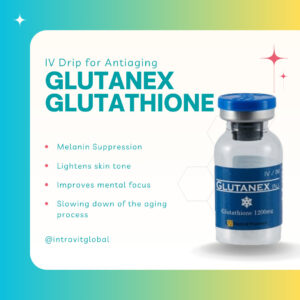The Four Types of Vitamin B12: Which One Is Right for You?
Outline
Introduction
- Importance of Vitamin B12
- Overview of the four types
What is Vitamin B12?
- Definition and role in the body
- Symptoms of B12 deficiency
The Four Types of Vitamin B12
- Overview of each type
Methylcobalamin
- Natural form
- Benefits
- Sources
- Who should use it?
Cyanocobalamin
- Synthetic form
- Benefits
- Sources
- Who should use it?
Hydroxocobalamin
- Natural form
- Benefits
- Sources
- Who should use it?
Adenosylcobalamin
- Natural form
- Benefits
- Sources
- Who should use it?
Comparing the Four Types
- Effectiveness
- Absorption rates
- Stability
Choosing the Right Vitamin B12 for You
- Factors to consider
- Personal health conditions
- Dietary preferences
Vitamin B12 in Foods
- Natural sources
- Fortified foods
- Supplements
Vitamin B12 Supplements
- Types of supplements available
- Dosage recommendations
- Tips for choosing the right supplement
How to Test Your Vitamin B12 Levels
- Types of tests
- When to test
- Understanding the results
Common Myths About Vitamin B12
- Debunking popular myths
- Clarifying misconceptions
Potential Side Effects and Risks
- Overconsumption
- Interactions with medications
Conclusion
- Recap of key points
- Final recommendations
FAQs
- Can you take too much Vitamin B12?
- Is Vitamin B12 deficiency common?
- Can Vitamin B12 boost energy levels?
- Are there any side effects of Vitamin B12 supplements?
- How long does it take to see the benefits of Vitamin B12 supplements?
The Four Types of Vitamin B12: Which One Is Right for You?
Introduction
Vitamin B12 is a crucial nutrient that plays an essential role in our overall health. It’s vital for the production of red blood cells, the functioning of the nervous system, and the synthesis of DNA. Despite its importance, many people are unaware of the different types of Vitamin B12 and which one might be best suited for their needs. This article will delve into the four types of Vitamin B12, helping you understand which one is right for you.
What is Vitamin B12?
Vitamin B12, also known as cobalamin, is a water-soluble vitamin that is essential for various bodily functions. It helps maintain healthy nerve cells and red blood cells and is also involved in the production of DNA. A deficiency in Vitamin B12 can lead to serious health issues such as anemia, fatigue, and neurological problems.
The Four Types of Vitamin B12
There are four main types of Vitamin B12: Methylcobalamin, Cyanocobalamin, Hydroxocobalamin, and Adenosylcobalamin. Each type has its unique properties and benefits, and understanding these can help you make an informed decision about which one to use.
Methylcobalamin
Natural form
Methylcobalamin is a naturally occurring form of Vitamin B12. It is considered one of the most bioavailable forms, meaning the body can absorb and utilize it more effectively.
Benefits
This form of Vitamin B12 supports neurological health and helps in the detoxification of the body. It is particularly beneficial for improving energy levels and mental clarity.
Sources
Methylcobalamin can be found in animal-based foods such as meat, fish, eggs, and dairy products. It is also available as a dietary supplement.
Who should use it?
Individuals with neurological issues or those who require enhanced cognitive function may benefit from Methylcobalamin. It’s also suitable for people looking for a natural and easily absorbable form of Vitamin B12.
Cyanocobalamin
Synthetic form
Cyanocobalamin is a synthetic form of Vitamin B12 that is commonly found in supplements and fortified foods.
Benefits
It is highly stable and has a long shelf life. Cyanocobalamin is effective in treating and preventing Vitamin B12 deficiency.
Sources
This form is not typically found in nature but is prevalent in many over-the-counter Vitamin B12 supplements and fortified foods.
Who should use it?
Cyanocobalamin is a good choice for individuals looking for an affordable and readily available Vitamin B12 supplement. It is also ideal for those who need to address a Vitamin B12 deficiency quickly.
Hydroxocobalamin
Natural form
Hydroxocobalamin is a natural form of Vitamin B12 produced by bacteria. It is commonly used in medical settings.
Benefits
This form is known for its ability to stay in the bloodstream longer, making it effective for treating B12 deficiencies. It is also used as an antidote for cyanide poisoning.
Sources
Hydroxocobalamin is not typically found in food but is available through prescription injections.
Who should use it?
Hydroxocobalamin is often recommended for individuals with severe Vitamin B12 deficiencies or those who have difficulty absorbing B12 from supplements. It’s also suitable for medical treatments under professional supervision.
Adenosylcobalamin
Natural form
Adenosylcobalamin is another natural form of Vitamin B12 that is active in the mitochondria, the powerhouse of the cells.
Benefits
It plays a crucial role in energy metabolism and the production of fatty acids and amino acids.
Sources
Adenosylcobalamin is found in meat and animal products and is also available in certain supplements.
Who should use it?
Individuals with metabolic disorders or those seeking to boost their energy levels might find Adenosylcobalamin beneficial. It’s ideal for those looking to support mitochondrial health.
Comparing the Four Types
Effectiveness
All four types of Vitamin B12 are effective, but their effectiveness can vary depending on individual health conditions and needs. Methylcobalamin and Hydroxocobalamin are often preferred for their natural forms and longer retention in the body.
Absorption rates
Methylcobalamin and Adenosylcobalamin are more readily absorbed by the body compared to Cyanocobalamin. However, Hydroxocobalamin is known for its prolonged presence in the bloodstream.
Stability
Cyanocobalamin is the most stable form, making it a popular choice for supplements. However, it needs to be converted into active forms within the body.
Choosing the Right Vitamin B12 for You
When choosing the right type of Vitamin B12, consider factors such as your health condition, dietary preferences, and the specific benefits you seek. Consulting with a healthcare professional can provide personalized recommendations based on your needs.
Vitamin B12 in Foods
Natural sources
Vitamin B12 is naturally present in animal products like meat, fish, eggs, and dairy. These foods are excellent sources for individuals who include animal products in their diet.
Fortified foods
For vegetarians and vegans, fortified foods such as
plant-based milk, cereals, and nutritional yeast can provide a good source of Vitamin B12.
Supplements
Vitamin B12 supplements are available in various forms, including tablets, capsules, sublingual (under-the-tongue) forms, and injections. These can be particularly useful for those who have dietary restrictions or absorption issues.
Vitamin B12 Supplements
Types of supplements available
Vitamin B12 supplements come in several forms, such as tablets, lozenges, patches, and liquid drops. Each type offers different benefits depending on how the body absorbs them.
Dosage recommendations
The recommended dietary allowance (RDA) for Vitamin B12 varies by age, gender, and health condition. For most adults, the RDA is 2.4 micrograms per day, but this can be higher for pregnant and breastfeeding women.
Tips for choosing the right supplement
- Look for high-quality supplements from reputable brands.
- Consider the form of Vitamin B12 that best suits your needs (e.g., Methylcobalamin for neurological health).
- Check the dosage to ensure it meets your dietary requirements.
- Consult with a healthcare provider to determine the best type and dosage for you.
How to Test Your Vitamin B12 Levels
Types of tests
There are several ways to test Vitamin B12 levels, including blood tests that measure serum B12, holotranscobalamin (active B12), and methylmalonic acid (MMA), which can indicate functional B12 deficiency.
When to test
It’s advisable to test your Vitamin B12 levels if you experience symptoms of deficiency, such as fatigue, weakness, or neurological issues. Regular testing can be beneficial for individuals with conditions that affect nutrient absorption.
Understanding the results
Normal serum B12 levels typically range from 200 to 900 picograms per milliliter (pg/mL). Levels below 200 pg/mL may indicate a deficiency, while levels above 900 pg/mL are generally considered sufficient.
Common Myths About Vitamin B12
Debunking popular myths
- Myth: Only vegetarians and vegans need to worry about Vitamin B12 deficiency.
- Fact: While vegetarians and vegans are at higher risk, anyone can develop a deficiency due to absorption issues or certain medical conditions.
- Myth: Vitamin B12 supplements can replace a healthy diet.
- Fact: Supplements should complement a balanced diet, not replace it.
- Myth: You can get enough B12 from plant-based sources alone.
- Fact: Natural plant-based sources are not reliable for Vitamin B12; fortified foods and supplements are necessary for vegetarians and vegans.
Clarifying misconceptions
Understanding the facts about Vitamin B12 can help you make informed decisions about your health and supplementation needs.
Potential Side Effects and Risks
Overconsumption
While Vitamin B12 is generally considered safe, excessive intake from supplements can lead to minor side effects such as dizziness, headache, and nausea. However, because it is water-soluble, the risk of toxicity is low.
Interactions with medications
Vitamin B12 can interact with certain medications, such as metformin (used for diabetes) and proton pump inhibitors (used for acid reflux). These interactions can affect B12 absorption, so it’s essential to discuss supplementation with a healthcare provider if you’re on these medications.
Conclusion
Vitamin B12 is an essential nutrient with various forms, each offering unique benefits. Understanding the differences between Methylcobalamin, Cyanocobalamin, Hydroxocobalamin, and Adenosylcobalamin can help you choose the right one for your needs. Whether through diet, supplements, or a combination of both, ensuring adequate Vitamin B12 intake is crucial for maintaining overall health and well-being.
FAQs
Can you take too much Vitamin B12?
While Vitamin B12 has a low toxicity risk, excessive intake from supplements can cause minor side effects like dizziness and headache. Always follow dosage recommendations and consult with a healthcare provider.
Is Vitamin B12 deficiency common?
Yes, especially among vegetarians, vegans, and older adults. Certain medical conditions and medications can also lead to deficiency.
Can Vitamin B12 boost energy levels?
Yes, adequate Vitamin B12 levels are essential for energy production. Deficiency can lead to fatigue and weakness.
Are there any side effects of Vitamin B12 supplements?
Most people tolerate Vitamin B12 supplements well, but some may experience minor side effects like nausea or headaches.
How long does it take to see the benefits of Vitamin B12 supplements?
Improvement in symptoms can vary. Some may notice benefits within days to weeks, while it may take longer for others depending on the severity of deficiency and overall health.
Checkout our Facebook Page and leave your review about our Health Care Products.
Related Products
-
Vitamin Drips
Myers Cocktail Box – Best IV Drip for Holistic Wellness
£450.00 – £2,000.00 Select options This product has multiple variants. The options may be chosen on the product pageRated 0 out of 5 -
Hot-Sale
Glutanex Glutathione 600mg IV Drip for Antiaging, Melanin Suppression, Antioxidant Skin Brightness Benefits
Rated 0 out of 5£60.00Original price was: £60.00.£50.00Current price is: £50.00. Add to cart -
Vitamin Drips
Nexus Pharma’s ETHICAL Hycobal Vitamin B12 Hydroxocobalamin 5mg/2ml to Elevate Your Energy, Naturally
£25.00 – £175.00 Select options This product has multiple variants. The options may be chosen on the product pageRated 0 out of 5 -
Vitamin Drips
Masi Injection Magnesium Sulfate 0.5g/5ml for Skin Repair and Rejuvenating Regeneration
£20.00 – £75.00 Select options This product has multiple variants. The options may be chosen on the product pageRated 0 out of 5





